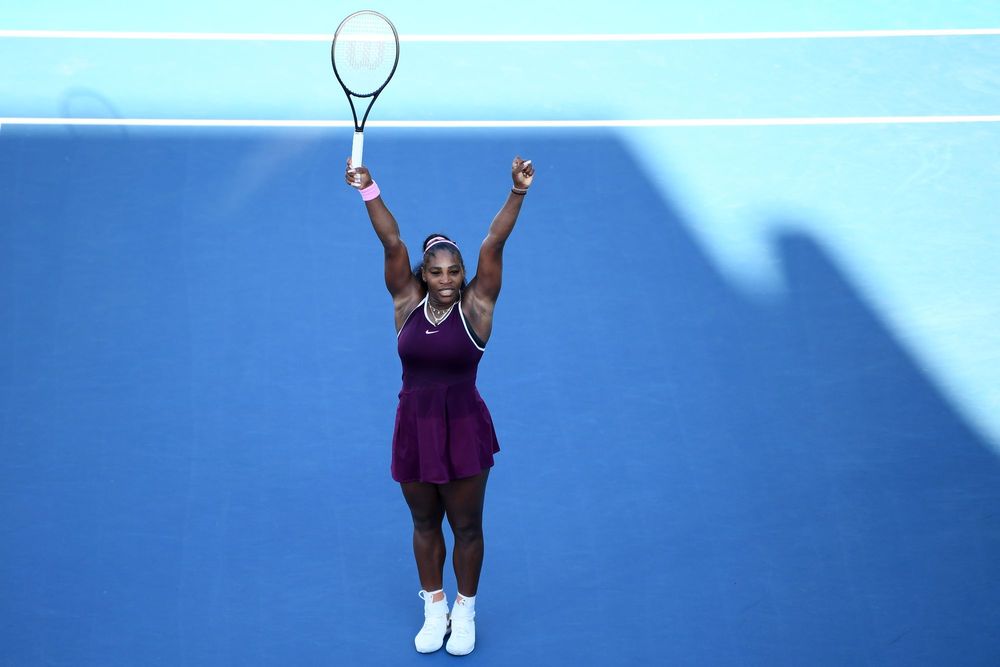Serena Williams’ legendary tennis career is coming to an end.
On Tuesday (Aug. 9), Vogue published Serena’s open letter announcing her impending retirement from competitive play, citing a commitment to family—namely her 4-year-old daughter, Olympia—as one of the reasons for her decision.
“I’m terrible at goodbyes, the world’s worst. But please know that I am more grateful for you than I can ever express in words,” she writes. “You have carried me to so many wins and so many trophies. I’m going to miss that version of me, that girl who played tennis. And I’m going to miss you.”
Serena is currently preparing for the 2022 U.S. Open in New York, her presumed final outing. The countdown has begun. For a long time, it seemed like it never would.
Serena’s putting the racket down, but she’s not done living.
Her dominant professional career, which began in 1995, stretches across decades, her milestones stitched together by seismic shifts in American reality. Merging finesse with force and technique with heart, Serena has been winning majors since Bill Clinton was finishing up his presidency. iPods—let alone iPhones—didn’t exist. Slim Shady had just begun his ascent. TSA wasn’t a thing. Trucker hats were.
She won her first singles major title in 1999, at the age of 18. She went on to collect 22 more, beating Steffi Graf’s Open record in the process. She held down the No. 1 spot in the Women’s Tennis Association’s (WTA) world ranking for a combined 319 weeks. Partnering with her sister, Venus, she won 23 doubles titles, including six Wimbledon titles between 2000 and 2016. She won the 2017 Australian Open when she was two months pregnant.
In between her wins and losses, she’s faced flashes of racism, tragedy, and mounting pressure, only adding a layer of mortality and emotion for fans to grasp onto. She used her platform to speak out against injustice, as she did in the wake of Michael Brown's killing in Ferguson.
Serena’s wins allowed her to join the ranks of Gretzky, Jordan, LeBron, and Tiger as athletes who became so successful and ubiquitous that they’re known mononymously, emblems of greatness rendered through six or seven characters in the Roman alphabet. Her hood fairy tale origin story—that of a little Black Compton girl raised by a demanding-but-loving father to become the best at what she does—only fortified her legend, one chapter of which is set to end over the next month.
As spectators, it’s easy to look at a sports retirement as the end, but that interpretation is one-dimensional. Serena’s putting the racket down, but she’s not done living.
“I have never liked the word retirement,” she writes. “It doesn’t feel like a modern word to me. I’ve been thinking of this as a transition, but I want to be sensitive about how I use that word, which means something very specific and important to a community of people. Maybe the best word to describe what I’m up to is evolution. I’m here to tell you that I’m evolving away from tennis, toward other things that are important to me. A few years ago I quietly started Serena Ventures, a venture capital firm. Soon after that, I started a family. I want to grow that family.”
Along with her family and business exploits, the legend of Serena Williams also has a chance to grow, even if her winning ways had already secured her immortality.
Whether it’s through barely HD YouTube highlights, interviews, documentaries, a cursory look through her Wikipedia page, or something pure, like the dreams of fans she’s inspired, Serena’s legacy will endure. Her major victories slowed to a trickle in the twilight of her career, but her impact remains. I don't remember a time before Serena was a winner and I can't imagine her as anything else. If she approaches the rest of her life the way she did her tennis career, I won't have to.
